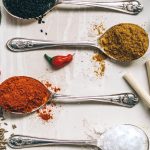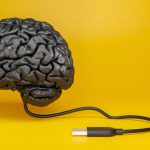Have you or someone close to you ever felt an intense feeling of sadness? Feelings of helplessness, hopelessness or worthlessness lasting for days or weeks…the type that starts keeping you from your everyday activities? If so, this may be something more than sadness. It’s possible you could be someone with clinical depression… before you become alarmed, did you know this is a treatable condition? Unfortunately, most people with clinical depression fail to seek treatment. Left undiagnosed and untreated, depression can worsen, potentially lasting for years and causing untold suffering, and possibly suicide. It is calculated that by 2020, depression will be the second leading cause of disability in the world, just after ischemic heart disease.
Tell me what you lack and I’ll tell you what you’ve got
There are many reasons why depression can occur; genetic predisposition, losing a loved one, chemical unbalance, or variations on the anatomy of the brain. For instance, low levels of serotonin, one of many brain chemicals, can affect the communication among regions involved in the process of emotions in your brain. It has been observed that in people with a history of depression, the hippocampus, a small part of the brain in charge of storing memories, seems smaller in people who’ve never been depressed. A consequence of a smaller hippocampus is fewer serotonin receptors which could lead to depressed moods.
How can food affect your mood?
The regulation of mood is the goal in treating the biology of depression. One way to boost your mood is through your diet. So, although there are many factors that could trigger depression, there are many ways you can prevent it and one of them is through your diet. And while diet is an important aid, it doesn’t replace the benefits of therapy and/or treatment.
Diet can be an aid in achieving chemical balance. Depression, or a depressed mood, may change or influence what you eat. Consistent evidence has shown that the quality of your diet is related towards your risk of developing a mental illness like depression.
Tryptophan is an essential amino acid, meaning your body cannot produce it and you must obtain it from your diet. The main role of tryptophan is to produce serotonin. Serotonin carries signals between nerves that can be found in your gut, brain and in blood platelets. Serotonin is in charge of regulating body processes and contributes to well-being and happiness. It is responsible for maintaining mood balance. A serotonin deficit can lead to depression.
Myths about tryptophan and serotonin
Some people think that by just eating a diet rich in protein your tryptophan and serotonin levels will raise. This is false. Amino acids, which are the basic blocks of protein, have to compete to be absorbed. Therefore, a high intake of protein does not guarantee a high absorption of tryptophan.
Another claim suggests that eating foods rich in serotonin will boost your serotonin levels. This is also false. Serotonin can in fact be found in foods like bananas; however it is not able to cross the blood–brain barrier in your body. So, if serotonin cannot get to your brain and tryptophan gets knocked out when trying to get into your digestive tract, than how can food help you with depression?
- Smart carbs and their soothing effect
You might have the idea that carbohydrates are bad for you and you should avoid them at all costs. Think again; carbs finally get some positive feedback! Complex carbohydrates are not only necessary for body processes such as digestion and providing glucose to the brain, but they can also affect mood.
High sugary foods can bring your energy and mood to come crashing down. However, complex carbohydrates, like whole grain cereals, pulses, and veggies are gradually absorbed and provide you with longer term energy. Complex carbs can also raise your level of serotonin. Next time you feel down, check your diet and try some low-fat carbs for a pick-me-up.
- Curcumin
Curcumin is a bright yellow chemical compound present in curry and turmeric. According to research, among its many benefits it has also shown antidepressant properties. Unlike tryptophan and serotonin rich foods, curcumin is able to penetrate the blood-brain barrier and to increase serotonin and dopamine, another neurotransmitter that controls your brain’s pleasure centre. You can incorporate curcumin into your diet and prevent depression. Add it to season any type of meat such as fish or sprinkle it over your cup of milk or tea. My personal favourite recipe is a cup of warm almond milk, a teaspoon of curry or turmeric powder and cocoa powder, ½ teaspoon of ginger and a touch of cinnamon. Satisfying to both the belly and brain!
- Alcohol
Like everything, it’s about balance. Although alcohol might make you feel relaxed, it’s often fleeting. Heavy drinking can make depression symptoms worsen over time. Alcohol is a natural depressant which reduces your brain activity. Instead, go for drinks without alcohol and low sugar content.
- B Vitamins
How often do you eat dark leafy greens? Your lack of greens could lead to a low a folate (vitamin B9) intake. Studies have shown that a low intake of folate and cobalamin (Vitamin B12) could lead to depression. Folate and cobalamin are essential for neurological function.
Increase your intake of B vitamins by adding greens and pulses into your daily meals. A cup of spinach or asparagus contains 65% of your folate recommend intake and a cup of lentils contain up to 90% of the daily recommend intake (% DV). Seafood is also a good source of B12. If you are vegetarian, fortified cereals and dairy products as well as supplements are the way to go.
- Magnesium
According to research, magnesium can improve your mood. When you have a magnesium deficiency some personality changes can occur. These can be from apathy, and anxiety, to depression and delirium. Foods that are rich in magnesium include dark leafy greens such as spinach; one cooked cup of spinach contains 39% of your daily recommend intake. It can also be found in nuts and seeds (e.g.100 g of pumpkin seeds contain 37% DV), fish (A portion of mackerel contains 21 % DV) as well as beans and lentils (approx. 20% DV), whole grains (21% DV) and avocados (9% DV).
- Omega 3
Omega-3 rich foods have also been pointed out by research as an aid in the control of mood changes due to depression. These fatty acids play an important role in the development and function of the central nervous system. Fatty fish like salmon, tuna, and mackerel as well as flaxseed and nuts are omega-3 rich options to include in your meals in the prevention and fight against depression.
Reach out
Choosing the right foods can help boost your mood. Remember to maintain a balanced diet rich in dark leafy vegetables, pulses and whole grains. Try adding foods and ingredients to your meals that make them richer in nutrients and depression fighting agents like curcumin. Likewise, regular exercise, meditation and other good healthy habits can help you feel positive about your life. But they won’t replace medical treatment or talk therapy. Depression is a serious illness; I would guess even as you’re reading this, you know someone who might be depressed. Don’t be afraid to reach out for help.
Male Psychology Network. Includes free and international resources like Samaritans.
NHS talking therapies – Online self-referral. Check if it’s available in your area and make an appointment online.
The official register of Accredited BABCP CBT and AREBT therapists. Here you can find details of all officially accredited CBT Therapists. All the practitioners listed here are accredited members of either the British Association for Behavioural & Cognitive Psychotherapies (BABCP), which is the lead organisation for CBT in the UK and Ireland, or the Association for Rational Emotive Behaviour Therapy (AREBT).
WPF Therapy. A charitable foundation in London dedicated to therapy and training in its many different forms.













